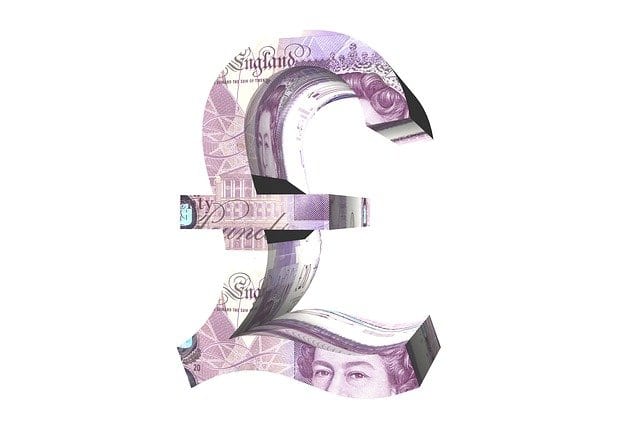

It is interesting to look back 12 months to Rishi Sunak’s first Budget: it was followed by a year none of us could have predicted or imagined. The Conservatives had won a comfortable majority in the December 2019 General Election. As expected, Sajid Javid became Chancellor and, in January, announced that the Budget would take place on Wednesday March 11th.
It was noted at one-point last year that, ‘When Sajid Javid announced the date virtually no one had heard of Coronavirus. When he resigned in mid-February, it was something largely confined to China – there were just two cases in Italy.’
Fast forward to the here and now and the UK in the midst of a pandemic. The UK’s vaccination program has, so far, been a success, but the last year has done more damage to the economy than any of us could imagine.
In his speech the Chancellor had to lay the groundwork for an economic recovery – and find a way to pay for the huge increase in borrowing required to pay for the support measures that have been put into place over the last 12 months. This was set up to be a classic ‘Budget of balance’.
A Few Key Points & Comment
Furlough:
Extended until the end of September, with the Government to continue paying 80% of employees’ wages for hours they cannot work and Employers to be asked to contribute 10% in July and 20% in August and September. Support for the self-employed also to be extended until September.
Comment: This will certainly help Employers gradually get ready to trade or to plan to bring back Employees. It also gives the Employee some certainty over their continued furlough Income. The worry is if a business can afford to bring Employees back to work in September and with the OBR suggesting that unemployment will continue to rise, with many jobs still cushioned by the furlough scheme. The number of individuals furloughed at the end of January stood at 4.7million.
Taxation:
No changes to rates of income tax, national insurance, or VAT, with Personal income tax allowance to be frozen at £12,570 from April 2022 to 2026 & Higher rate income tax threshold to be frozen at £50,270 from 2022 to 2026.
Corporation tax on company profits to rise from 19% to 25% in April 2023
Comment: Individuals start paying tax when they earn more than £12500 and the thresholds will go up to £12,570 and £50,270 in April but will then be frozen for five years.
With these staying at the same level until April 2026, if your income increases you may find yourself paying more tax and in a new tax bracket. As always there is no such thing as a free lunch and this will raise more money for the Treasury, estimated to be an extra £8bn a year by 2025-26, compared to what would have been the case if thresholds rose in line with the cost of living.
The rise in corporation tax is designed to hit those who will have increasing profits over the next few years but will be kept at 19% for about 1.5 million smaller companies with profits of less than £50,000 and according to the Chancellor 70% will unaffected and just 10% will pay the higher rate and the 30% looming will need to start looking at ways of offsetting.
Mortgages:
“Housing,” said the Chancellor, “is responsible for 500,000 jobs.” Therefore, he was extending the current reduction in stamp duty, with the £500,000 nil rate band now applying until the end of June. The nil rate band would then be £250,000 until the end of September, at which point the normal threshold of £125,000 would come back into play.
The Chancellor also announced a new mortgage guarantee scheme, with lenders who provide a mortgage to homebuyers who can only afford a 5% deposit benefitting from a government guarantee on those loans. This will apply on home values of up to £600,000 with several leading lenders having already signed up to the scheme.
“Generation rent,” declared Sunak in the most predictable line of the speech, would become “generation buy.”
Comment: The recent re-emergence of 90% mortgages has helped people get on the property ladder or move home and no doubt a 95% mortgage will also help. The Lenders will also no doubt impose a different style of underwriting with the increased risk-albeit with some government guarantee.
Caution should still be the watch word as the risk of negative equity increases if property market values reduce and no one wants the negative equity problems we had a few years ago-and we know people who are still feeling the effects of that period. Even though a 95% mortgage will be available, you will have to still show affordability and any furlough income will still have an impact on that affordability.
The stamp duty holiday, will also double up as a tool to reduce the current pressures and to clear a backlog to ensure previous promises are met, though will we have a similar backlog in June with more people expected to take advantage-but it will probably ensure those currently in that backlog can now sleep a bit better.
Savings:
There will be a new savings product designed to raise money for environmental projects. This “green bond” will be issued by the government-backed National Savings and Investments (NS&I), which has been criticised recently for the reduction in interest rates.
It will be issued in the summer, but there are no details yet on the interest rate that will be paid to savers and will be designed to help the transition to net zero greenhouse gas emissions in 2050. It will be available through NS&I.
Comment: NS&I have a history of offering products that have an initial attractive rate of interest, then after the term, the rate drops like a stone and you are left looking for alternatives. Investing with a theme of Environmental, Social, and corporate Governance (ESG) is becoming more widespread and this is no doubt the Governments way of joining the party, albeit in a more guaranteed way that cash can bring-wait and see.
Inheritance Tax-No Change
Capital Gains Tax-No Change
ISA & Junior ISA Allowance-No Change
Pension Lifetime & Annual Allowance– No Change
As normal the devil is always in the detail and more will become understood and revealed over the coming days and weeks and if you need any help or clarification on any of the above or questions over the possible impact on you, then please do not hesitate to contact us
